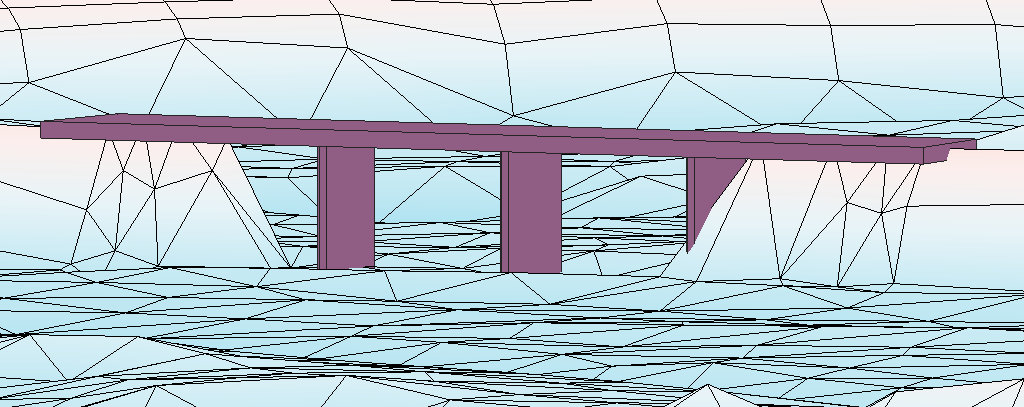We use cookies to make your experience better. To comply with the new e-Privacy directive, we need to ask for your consent to set the cookies. Learn more.
Benefits of 3D Structures
Does your Surface-water Modeling System (SMS) project require simulating the effects of bridges or culverts? For some time we have had the capacity to simulate these structures in 2D or 1D for use with numeric models such as SRH-2D and TUFLOW. More recently, we have added the ability to create and insert these structures in 3D thus improving your modeling capabilities and visualization options.
When running a model, having a bridge or other structure in the model can change the results of the model run. 3D structures provide more detail for how the structure will fit into the landscape. SMS allows the creation of the structure and inserting it into the 2D model, so you can see how and where it fits into the project. This potentially makes for a more accurate model. Furthermore, an unstructured grid of the 3D structure can be generated to visually show how the structure fits into your model..

Currently, SMS has the ability to create two kinds of 3D structures: bridges and culverts. It can also customize each one to include multiple configurations. 3D structures provide extra flexibility in the simulation, such as being able to have variations in the bridge ceiling along the entire width, which can match the reality of bridge structures much more closely. Your model can also include more than one 3D structure and a mix of types of structures as well. But note, multiple 3D structures could slow down your simulation. Currently, 3D structures can only work with SRH-2D models.
Creating a 3D structure will also automate some things you would have likely needed to do manually beforehand, like create the voids necessary for piers and walls. This reduces the potential for errors that manual void creation can have and improves the reliability of the model.
The 3D structure can be used as part of an observation plot and can also generate a new dataset for the maximum water surface elevation (ceiling elevation) in the model. Overtopping is, of course, included, as well as pressure flow through the culvert or under the bridge.
Head on over to SMS and see how adding 3D structures can improve your project today.


